By: Dr. W. Scott West, Chief Medical Officer, Nashville Neurocare Therapy
Understanding self-harm.
During March, we bring our awareness to self-harm. Self-harm, also known as “self-injury” or “non-suicidal self-injury (NSSI),” includes any “deliberate, self-inflicted destruction of body tissue without suicidal intent and for purposes not socially sanctioned” (NIH). While cutting, burning, biting, and scratching might be the first behaviors that come to mind when you think of self-harm, it can take many forms. In my experience as a psychiatrist, I’ve witnessed self-injury manifest as punching the body, picking at existing wounds, and pulling out hair.
What NSSI is not, however, is a mental health disorder, and it is not the same thing as a suicide attempt. Instead, it is a set of behaviors that indicate further psychological distress. This distress may or may not be due to a mental illness such as major depressive disorder, borderline personality disorder, eating disorders, or obsessive-compulsive disorder.
Suppose you are someone who has never inflicted self-harm yourself. In that case, you might have difficulty understanding why someone might intentionally hurt themselves. Self-injury is often a negative coping method for emotional pain and reclaiming control over your body and feelings. This APA study found that, over time, people who engage in NSSI react more favorably to the pain because they . . . learned to associate it with pain relief.” In other words, those who harm themselves aren’t necessarily seeking the physical pain but rather the relief or euphoria that follows the pain.
How to identify self-harm.
Most of the time, self-harm is a private activity. Those inflicting self-injury aren’t trying to attract attention and will cover their wounds. This can make it challenging to identify when someone is engaging in NSSI.
Signs of self-harm may include:
- Unexplained injuries. They may make light of these injuries or chalk it up to being clumsy.
- Off-season clothing. They may wear attire inappropriate to the season, such as long sleeves and pants in hot weather.
- Sharp objects. They keep sharp objects or instruments that could be used for self-harming accessible.
- Depression Symptoms. They may exhibit other signs of depression, such as:
- Anhedonia, or lack of interest in their favorite things.
- Changes in sleep or eating patterns.
- Self-isolation.
- Talking poorly about themselves.
- Performing poorly at work or school.
How to talk to someone about self-harm.
If you discover that someone you love is self-harming, you may feel lost in how to help. If a friend has opened up to you, here are ways you can best support them:
- Table your judgment. Being open about self-harm takes a lot of courage and vulnerability. If your friend or family member is willing to talk to you about their experiences with self-harm, respond with compassion and curiosity rather than judgment and shame.
- Seek understanding. Many people fear that talking about self-harm with someone who is struggling will make them more likely to continue that behavior. In reality, talking about it can be helpful. Not only does it help someone feel less alone, but it allows them to process, perhaps for the first time, why they self-injure themselves and what they get out of it.
- Encourage them to get professional help. Even the best friend or family member can’t be responsible alone for someone’s psychological distress and self-injuring behaviors. While NSSI itself is not committed with suicidal intent, it is “a significant precursor to suicide” and deserves to be treated seriously (Kurtz Psychology). Encourage them to seek professional help to address and treat the underlying pain influencing their NSSI.
TMS Therapy can provide help with self-harm.
While NSSI is not a mental illness, it’s a symptom of deeper psychological distress that deserves addressing. If you or someone you love is self-injuring, support and more lasting, less destructive relief is possible.
At Nashville Neurocare Therapy, we specialize in treating depression with TMS Therapy. TMS Therapy, short for Transcranial Magnetic Stimulation, is an innovative therapy that treats depression using magnetic-pulse technology to stimulate areas of the brain with low metabolic activity. In other words, these brain areas are not working to their full potential.
The brains of people with depression and the brains of people without depression look and function differently. Most notably, centers that regulate mood aren’t as active in a depressed brain. TMS Therapy helps encourage your brain to heal itself by building and strengthening the neural networks that help control your mood and behavior. This offers real, lasting relief from depression.
While “stimulating the brain with magnets” might sound a little intimidating, TMS Therapy is completely comfortable, safe, perfectly natural, and offers no adverse side effects. Though it’s a lesser-known therapy, most private and public health insurances cover TMS Therapy, and the American Psychiatric Association lists TMS Therapy as an alternative to antidepressants if your medications aren’t working for you. If you aren’t finding relief from your depression through talk therapy or medication alone, talk to your doctor about TMS Therapy. Treatment for depression is not one size fits all, and there is hope for you. If you’d like to learn more about TMS Therapy and how it could help you or somebody you love, please request a Free TMS Therapy Screening. We’d love to see if TMS Therapy is a good fit for your path to healing.
About the Author: Dr. W. Scott West
Nationally recognized, board-certified psychiatrist, Dr. W. Scott West, blazed the trail for TMS therapy in Tennessee as the first physician to offer this advanced technology in 2010. With 30+ years experience in clinical depression, Dr. West leads the Nashville Neurocare team.
- Board Certified Psychiatrist
- Specialty: Certified TMS Psychiatrist since 2010
- Diplomate: The American Board of Psychiatry and Neurology
- Distinguished Life Fellow: American Psychiatric Association
- Residency: Vanderbilt University, Hospital Department of Psychiatry
- Medical School: University of Tennessee, Memphis, Center for the Health Sciences
- Hospital Affiliations: St. Thomas Hospital


